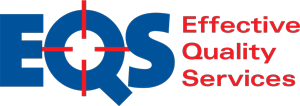1. Who should attend internal auditor training?
Quality managers, process owners, production supervisors, and any personnel responsible for conducting or overseeing internal audits should attend. Organizations often train multiple levels of staff to build redundancy and foster a culture of quality.
2. How long does the training typically last?
A basic ISO 9001 internal auditor course usually spans two to three days. Advanced or customized sessions may extend to four or five days, depending on the depth of practical exercises and industry specific requirements.
3. Is there an exam or certification after training?
Some providers offer an exam or competency assessment at the end of the course. While formal certification may not be required by ISO 9001, passing an exam demonstrates proficiency. At Effective Quality Services, we offer a completion certificate and a competency checklist to validate skills.
4. How much does ISO 9001 internal auditor training cost?
Costs vary based on format, location, class size, and customization. Public courses tend to be more economical, while onsite or private sessions reflect additional travel and preparation expenses. Investing in skilled internal auditors pays dividends by reducing nonconformities and improving process efficiency.
5. Can internal auditors audit multiple ISO standards?
Yes. Many organizations pursue integrated management systems combining ISO 9001 with ISO 14001 or ISO 45001. Our training can include modules on auditing environmental or occupational health and safety standards to streamline your audit processes.

